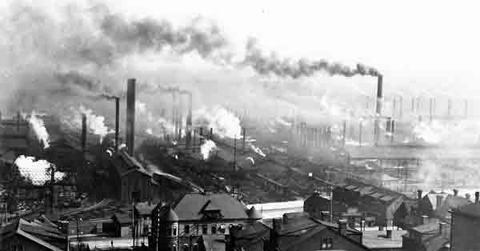Polishprince
Diamond Member
- Jun 8, 2016
- 45,076
- 34,481
- 3,615
The Pinkerton agency of rent-a-cops was hired by the Tremendous Henry C. Frick to protect his steel mill in Homestead PA after Big Labor tried to take down the mill. But the mall cops were met by the Labor goons before they were able to make to shore and report to their assignment.
Many brave Pinkertons were killed in cold blood, giving up their lives as security industry martyrs.
If you visit a mall today, please thank the mall cop for their service, remember the sacrifice these brave men made in 1892.

Many brave Pinkertons were killed in cold blood, giving up their lives as security industry martyrs.
If you visit a mall today, please thank the mall cop for their service, remember the sacrifice these brave men made in 1892.

The 1892 Battle of Homestead - Battle of Homestead Foundation
battleofhomestead.org
